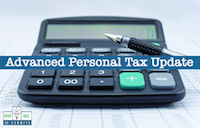What Else Is New in 2019? Auto Expense Deduction Changes

Did you check your odometer reading at the start of the year? Finance Canada confirmed its 2019 auto expense rates on December 27, but they don’t quite measure up to cover the carbon taxes that increase the cost of driving, including the increased gas prices as of January 1. Those who use passenger vehicles for business will be disappointed that their write-offs haven’t changed at all, unless a new vehicle was purchased after November 20, 2018.
Here are the tax changes:
Employer-owned cars. For those who use an employer-provided vehicle, the prescribed rate that determines the taxable benefit for the personal portion of operating expenses paid by employers will be increased to 28 cents per kilometer from 26 cents. For those employed principally in selling or leasing cars, the rate goes up to 25 cents; also a 2-cent-per-kilometer increase. However, that’s not all in terms of costs to employees with this benefit: a standby charge must be computed separately to reflect the fact that the car is available for personal use.
26 cents. For those employed principally in selling or leasing cars, the rate goes up to 25 cents; also a 2-cent-per-kilometer increase. However, that’s not all in terms of costs to employees with this benefit: a standby charge must be computed separately to reflect the fact that the car is available for personal use.
Employee-owned cars. For those who purchase a passenger vehicle, limits on the claims for capital cost allowance, interest costs and leasing costs will not be changed from 2018 limits. The amounts are $30,000 (plus taxes), $300 a month and $800 a month (plus taxes), respectively.
Tax-exempt allowances. The limit on tax-exempt allowances paid to employees who use their own vehicles for business purposes will increase by 3 cents to 58 cents per kilometer for the first 5,000 kilometres driven, and then to 52 cents for each additional kilometer. Those living in the Northwest Territories, Nunavut and Yukon will add 4 cents to this, making it 62 cents per kilometer for the first 5,000 kilometres, and 56 cents there over that distance. Given that these allowances are intended to offset the costs of owning and operating the vehicle — including fuel, financing, insurance, maintenance and depreciation — the new rates may not be enough to cover the carbon taxes of 4.4 cents starting April 1 for provinces that do not have their own carbon tax regime; and that amount will be even more in other provinces that do.
Average gas prices. It turns out Manitoba has the lowest average gas prices in the country these days, according to the CAA website. As of January 2, the rates were as follows:
|
Province |
Gas Price per Litre ($) |
|
Alberta |
091.1 |
|
British Columbia |
125.8 |
|
Manitoba |
088.7 |
|
New Brunswick |
101.6 |
|
Newfoundland and Labrador |
108.5 |
|
Nova Scotia |
096.1 |
|
Ontario |
097.6 |
|
Prince Edward Island |
095.7 |
|
Quebec |
108.4 |
|
Saskatchewan |
096.0 |
Evelyn Jacks is Canada’s most trusted educator in the tax and financial services. Founder and President of Knowledge Bureau and developer of the Real Wealth Management discipline. She is the author of 54 books, including her latest “Defusing the Family Business Time Bomb”, available in January 2019. You can also hear her speak at this January’s CE Summits.
Additional educational resources: With so many federal tax changes taking effect in 2019, it’s important for tax and financial advisors to get up to speed. Join Knowledge Bureau at our Advanced Personal Tax Update, starting January 17 and coming to six Canadian cities. Special tuition rates for early-bird registration apply only until tomorrow (January 10), including a special rate for a table of six ($286/pp)!
Early Registration Ends January 10, 2019
Advanced 2019
Personal Tax Update
COPYRIGHT OWNED BY KNOWLEDGE BUREAU INC., 2019.
UNAUTHORIZED REPRODUCTION, IN WHOLE OR IN PART, IS PROHIBITED.
 |
 |
 |
 |
|
Refer a Friend |
Research |
Calculators |
Course Trials |
 |
 |
 |
 |